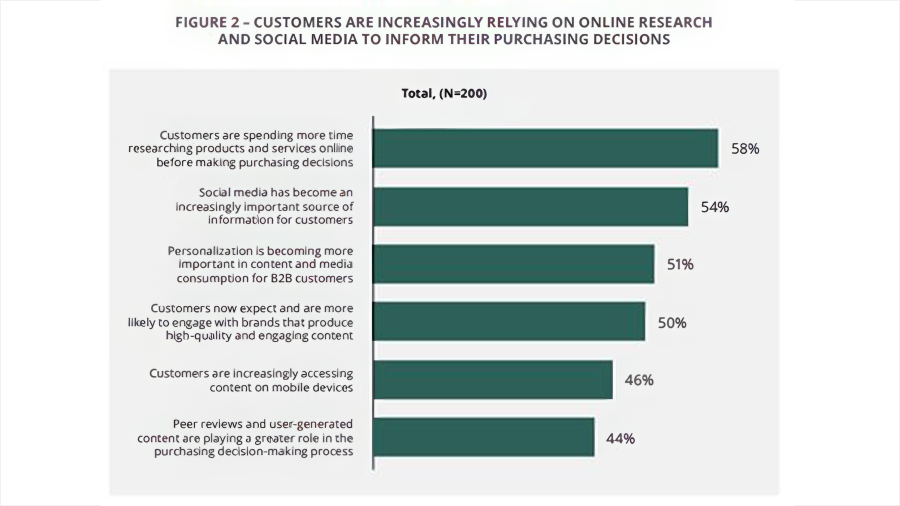Business-to-business (B2B) marketing is undergoing rapid and substantial changes according to a new report from Winterberry Group. The report, titled “Outlook for B2B Marketing – A Market in Transformation,” provides an in-depth look at how factors like digital transformation, evolving buyer expectations, and new technologies are reshaping B2B marketing.
The report is based on extensive research including surveys of over 200 B2B marketers and agency professionals across North America and Europe. It follows Winterberry data released in January showing B2B marketing spend may exceed $53.7 billion this year, finally surpassing 2019 pre-pandemic levels of $50.4 billion.
However, this return to growth is not just a recovery, according to Bruce Biegel, Winterberry Group senior managing partner and report co-author. The COVID-19 pandemic has catalyzed major shifts in how B2B organizations approach marketing strategy, execution, and organization.
“This full recovery of B2B spending is not a ‘back to usual’ moment,” said Biegel. “In fact, the COVID-19 pandemic and its aftermath have had a transformative effect on the marketplace.”
The report identifies several key factors driving this B2B marketing transformation:
- The Rise of the B2B Consumer – Buyers increasingly expect B2C-like experiences with customer service, design, social media use, reviews, and overall brand presence. Marketers must “consumerize” their approach.
- Digital Natives Take Over – Younger buyers more immersed in digital are reaching decision-making roles, changing behaviors like peer collaboration and social media use.
- The Content Imperative – AI and machine learning will enable personalized, optimized content at scale for efficiency, while human creativity builds brand trust.
- Data Privacy Changes Marketing – Regulations limit 1:1 targeting, but metadata, intent signals, and analytics can still boost impact.
- Focus Tech Spend on Use Cases – Investments should align sales and marketing around concrete objectives rather than features.
- Omnichannel is Essential – Digital grows in share of budget but offline channels like events remain critical for branding.
- B2B Marketing Teams Transform – B2C digital and branding skills will cross over into more fluid, omnichannel organizations.
Sponsors of the report like B2B marketing firm Anteriad and the Association of National Advertisers agree B2B marketers must focus on data, mapping customer journeys, and omni-channel strategies to adapt to these industry transformations.
“In order to reach today’s B2B buyer, marketers need to focus on addressing the data concerns that the Winterberry Group has raised in the research,” said Anteriad CEO Rob Sanchez. “Centralizing marketing data, using their tech stack investments to consolidate insights from digital channels, and analytics to map the new customer journey and to measure attribution, are all actions that should be on every B2B CMOs’ shortlist.”
As both B2B buyer behavior and marketers’ tools and capabilities evolve, B2B marketing itself must transform to remain effective. This Winterberry Group report provides an indispensable guide to the key trends reshaping the industry for the decade ahead.
Results of the full study, with an executive summary, are available for download from Winterberry Group, via a free registration: https://www.winterberrygroup.com/


 Whether you want to learn how to use LinkedIn, X or Facebook for marketing, or need to brush up on business skills like leadership, presentation skills or managing meetings, you will find something to enhance your professional skills with these on-demand courses.
Whether you want to learn how to use LinkedIn, X or Facebook for marketing, or need to brush up on business skills like leadership, presentation skills or managing meetings, you will find something to enhance your professional skills with these on-demand courses.